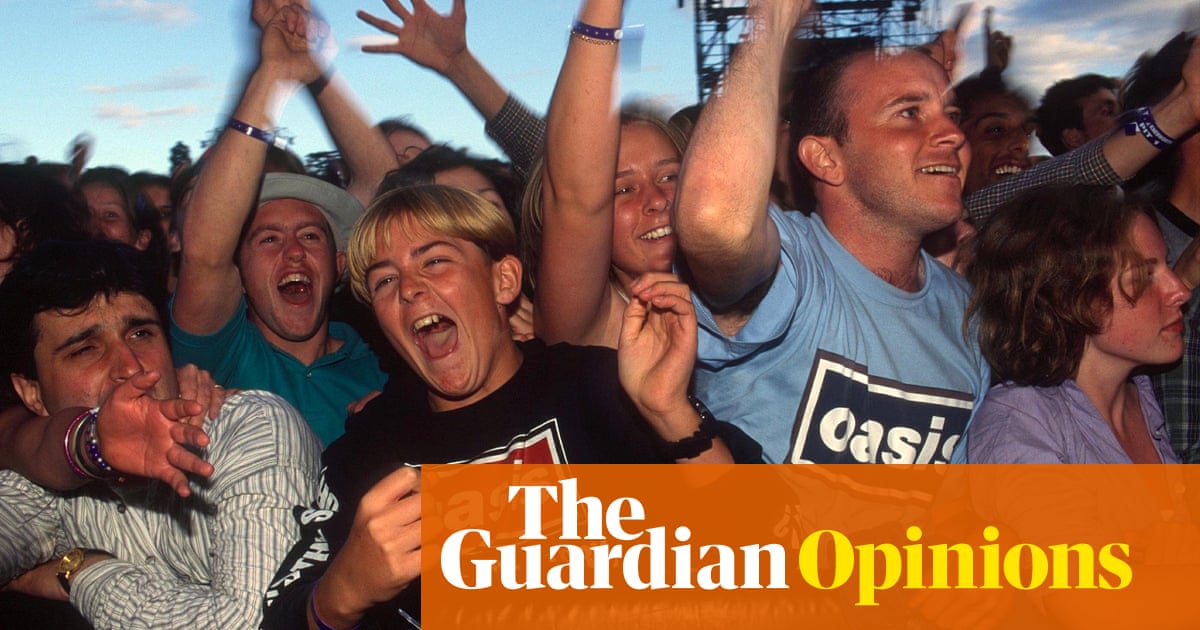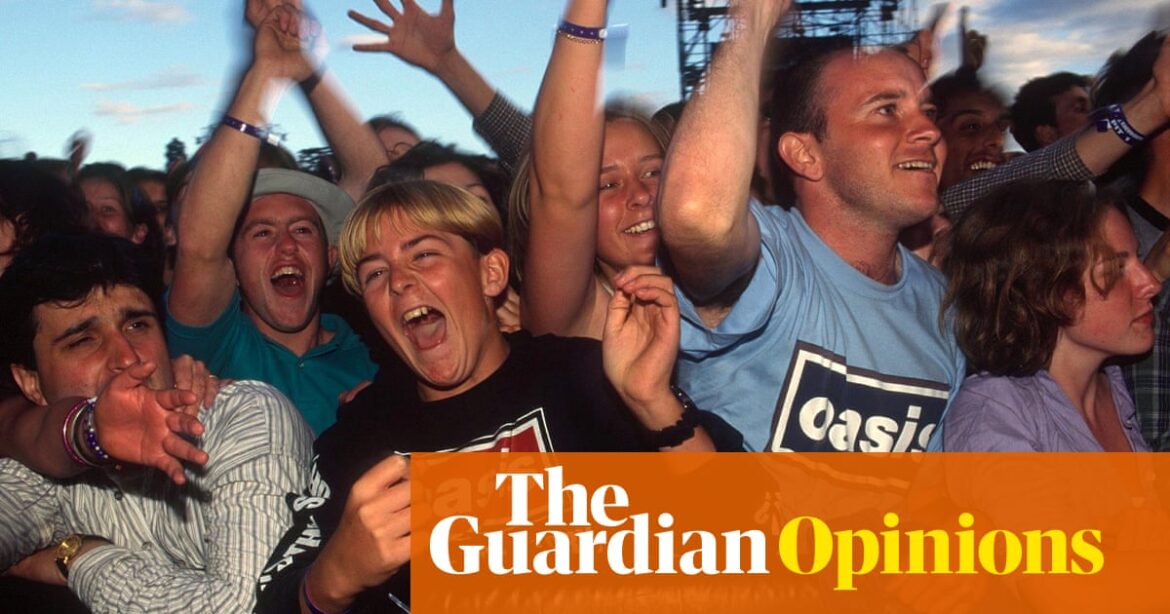
Judging by the reaction to the announcement of the Oasis reunion, it would seem that the most powerful of all 1990s drugs is nostalgia. For some hoary veterans of the Britpop era, the reunion gigs next summer will be an opportunity to dust off the old Reni hat, slip on a pair of faded Adidas Gazelles and recall an apparently simpler time. Meanwhile, for Oasis sceptics, the reunion will be nothing more than an example of what the French dramatist Émile Augier once called “nostalgie de la boue” – the desire to wallow in the mud and remember a tacky, regretful, slightly seedy experience from the collective past.
Somewhere between the sycophancy of Oasis stans and the cynicism of their detractors lies the truth about the band’s legacy. I sympathise with the view that Oasis heralded the rise of a certain strand of cultural conservatism in the mid-90s. But it’s also true that there was a good deal of radicalism – or at least radical potential – in their early output and its cultural effects. Right now, as a New Labour revival government struggles to inspire the public, and as people in Britain search for better forms of collective identity than the toxic populism of the right and far right, we could do a lot worse than remember what was so socially meaningful about the Oasis phenomenon in the first place.
Beyond all the noise about chart battles, sibling rivalry and Cool Britannia, the Oasis narrative was such a powerful one because it pointed to how a valuable new form of “oceanic feeling” – Sigmund Freud’s term for an all-embracing mass consciousness – might emerge in Britain in the dying days of the 20th century. For all its broadness and frequent crudeness, the collective mood that Oasis inspired was at heart an inclusive one, based on the desire to advocate a more demotic, more democratic way of national being, rooted in the lived reality of working-class experience.
Indeed, it is class more than anything else that shaped who Oasis were and what they meant to the wider public. While they were nothing like a definitive summary of working-class culture in its entirety (how could they have been?), Oasis summarised and celebrated a specific modern British working-class culture based on traditions of collectivity and uncovering the extraordinary in the everyday. The best early Oasis songs (Rock ’n’ Roll Star, Cigarettes & Alcohol, Don’t Look Back in Anger, Champagne Supernova) channelled the sense of communitarian empowerment that had been embodied in the best working-class pop music of post-60s Britain: the jukebox idealism of glam rock, the expressive howl of punk, the “chase the sun” euphoria of rave and, yes, the melodic humanism and collective scope of the Beatles.
But the Oasis sound and identity was also provoked into being by more antagonistic influences. Living in south Manchester in the Thatcherite 80s, the teenage Gallagher brothers would build up a deep store of anger at the savagely anti-working-class policies of a Conservative government intent on dismantling the welfare state and restoring the power of British elites who had been disenfranchised in the postwar years. Hence the angry, accusatory tone in so many of the best early Oasis songs, from the raging “outcast” and “underclass” of Bring It on Down to the “they” who will never see the things “we” see in Live Forever. This more melancholic, oppositional form of commonality is embodied in Noel Gallagher’s recollection that the Thatcher years were defined by the image of everyone he knew going to the dole office with their dads. Gallagher’s response, as Oasis biographer Paolo Hewitt once put it, was to create the sound of a council estate singing its heart out.
The great genius – some might say the great fortune – of Oasis was that they were able, in the heady, possibility-filled mid-90s, to take this combined experience of working-class pride and rage and suggest that it might become the dominant cultural influence in British society. Though the band are often shoehorned into discussions of Britpop (with an image of Noel Gallagher’s rarely used union jack guitar as convenient illustration), we should be clear that the kind of Britishness they embodied was – before the cliches and the branding took over – very much an alternative or outsider variation. This was a sensibility based mainly on loathing for the Tory establishment, a love of football and pop music, and, crucially, the fact that the Gallagher brothers were the children of immigrants and felt themselves to be Irish in any case.
Of course, we all know the ultimate endpoint of all this (or thought we did until the 2025 reunion was announced). One of the saddest things about Oasis is how quickly and easily they came to exchange oppositional soulfulness for an identity-sapping alliance with exactly the sorts of people they had originally defined themselves against. The analogy is a well-worn one, but just as Tony Blair sought to “build on” Thatcherism rather than reverse it, after their first two albums Oasis were caught beneath a landslide of money and excess, such that they were no longer in a position to write songs about being on the outside and yearning for something better.
It seems highly unlikely that next summer’s reunion will do anything very much to change all this. But it is surely not too much of a stretch to say that, as well as enjoying the power of the melodies themselves, one of the things the audience at these gigs will be feeling is a peculiar form of togetherness and collective hopefulness that is difficult to find in British culture outside rare, nation-transforming, once-in-a-generation examples like Oasis. Just maybe, the new iteration of the band will retain their old populist ability to suggest that there is another, better country on these islands waiting to come to the surface.
-
Alex Niven is a lecturer in English literature at Newcastle University and wrote a book about Oasis’ Definitely Maybe for the 33 1/3 series
Source: theguardian.com



